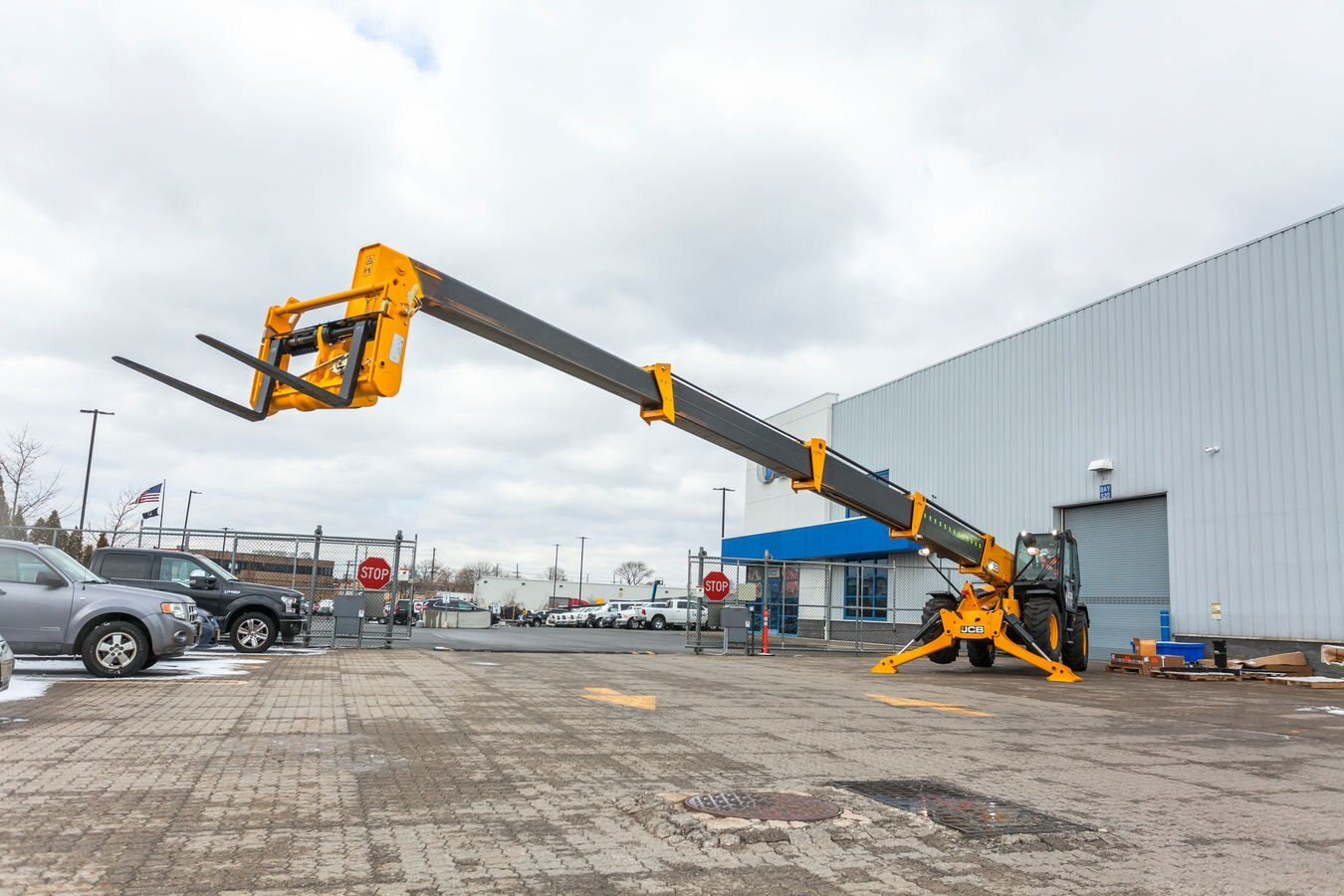|
|
|

|

|
|
|
INFORMATION DETAILS
ID: 14317913
|
Year: 2019
|
Make: JCB
|
Model: 508-66TC
|
Type: New
|
| MSRP:
N/A |
Engine Size - cc: N/A |
| Max Lift Height: | 20 m |
| Maximum Engine Power: | 55 kW |
| Maximum Lift Capacity: | 3,855 kg |
SELLER DESCRIPTION
508-66TC
The industry leading 508-66TC Loadall offers incredible reach of 66 feet and a maximum capacity of 8,500 lb, making this machine a highly efficient alternative to a roto or mobile crane.
Chain extension, combined with the durability of a single chassis JCB design and the 74 hp EcoMAX engine, provides unparalleled efficiency on the job site. |
|
Features
|
-
Large, spacious operator station
-
74 hp JCB EcoMAX engine - no after treatment required
-
Simple, ergonomic joystick controls
-
29 gpm hydraulic pump for fast cycle times
-
Five-section boom; 66-foot maximum lift height
|
|
|
|
Unrivalled Reach And Height
|
Offering an incredible 66 feet of reach, the JCB 508-66 TC telehandler offers one of the highest telehandler lifting heights available in North America.
Forward reach of more than 52 feet, gives the 508-66TC telehandler an advantage over the competition; ideal for placing loads without having to reposition the machine.
|
|
|
|
Visibility And Safety
|
Low boom profile and pivot point enable industry-leading visibility all around the machine from the operator's position.
A standard reverse alarm, and optional camera and pulse radar systems, ensure a safer work site for everyone.
Factory-fit immobilizers are activated by a unique key or optional push-button PIN system, to automatically arm the system after a certain period following engine shutdown.
|
|
|
|
Productivity And Performance
|
JCB’s regenerative hydraulics make the most of gravitational forces, to make boom lowering more energy efficient and productive.
66-foot lift height allows this telescopic handler to reach the sixth floor of a building, offering comparable capability to a mobile crane.
For added versatility, all JCB telescopic handlers are equipped with a single boom auxiliary feature to power a wide range of attachments.
|
Back
|
|
|
|
